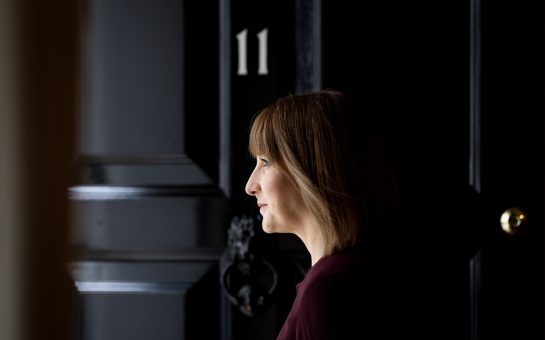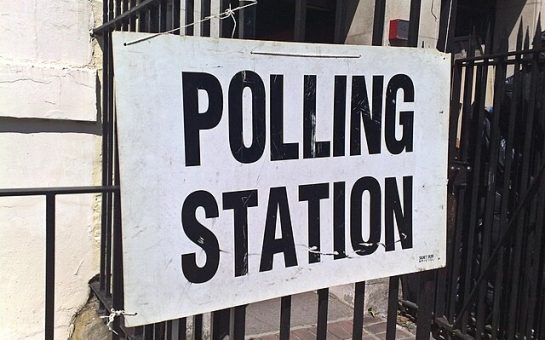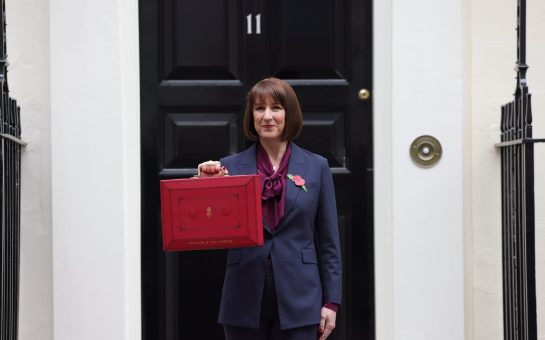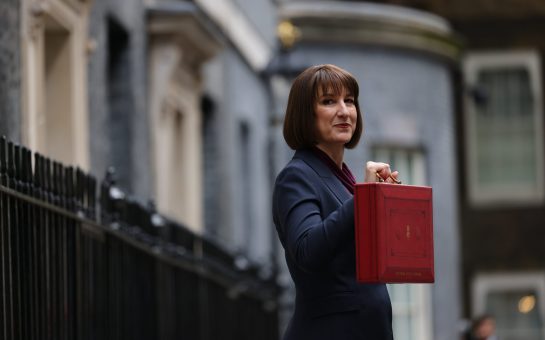“Polling day’s saying light rain and shower…”
“It’s too far away yet, don’t worry about it,” Labour councillor and organiser Kevin Peel reassures his prospective parliamentary candidate. “It’s too far away to be accurate.”
The weather might sound like a trivial concern, but in an ultra-marginal seat in the 2015 general election – such as here, Bury North – a prospective MP could be forgiven for fearing anything that could keep his or her voters away from the polling station.
One of only two Conservative seats in Greater Manchester, Bury North – covering most of Bury and the towns of Tottington and Ramsbottom – has switched parties a number of times since its creation in 1983.
Conservative MP Alistair Burt held it from then until 1997, when Labour’s David Chaytor claimed it – until he was forced to stand down after being caught up in the expenses scandal.
But of all candidates this time around, Labour’s James Frith could have the least to worry about. He’s the bookies’ favourite, and picking up some good feelings on the doorstep this showery morning, a week before polling day.
“It’s good,” he says. “We’ve been explaining our policies like our rescue plan for the NHS, tackling the cost of living crisis and improvements to standards of living, and that resonates.
“And there’s no love for the Tories.”
Selected two years ago as the candidate for Bury North, Frith is a local councillor for Elton, was the managing director of a small creative tech business, and is the founder of a social enterprise working employers and schools to improve young people’s work prospects.
He emits the seriousness and drive required of an MP, but has a likeability and sincerity that makes him feel very much a local candidate.
“There’s the national offer, which is the Labour party’s policy, and there’s also the competition for what kind of Member of Parliament the town wants,” he says. “What I’m saying is that Bury’s been overlooked and under-funded and we need someone to stand up for our town.
“I think people want fairness across every issue, and they see there hasn’t been any level of fairness in what the Conservatives have done. Why should it be that a town like ours has £114m of cuts made to it, while Surrey Heath, in Gove’s constituency, has £3 a head taken off it? The equivalent figure in Bury is £141 per man, woman and child.”
On the canvassing expedition MM has been invited to, the message seems to be getting through: many residents accept VOTE FRITH posters and put them in their windows, while many more windows already have them in.
The opinions of people in Bury town centre, however, closer reflect the marginal status of the constituency. MM speaks to many 20-somethings there, all of whom say they will vote in a week’s time, but none sure who for.
“Well, it’s got to be one of the two hasn’t it?” says Evie, a shop assistant. “Otherwise it’s a wasted vote.”
Her friend, Nicola, is equally unsure: “They all just say what you want them to say. I’ve no idea who I’ll vote for.”
Bury North’s incumbent MP, Conservative David Nuttall, takes the party line that the Government’s economic record is what should win people over on polling day, pointing to positive signs in the local economy.
“Unemployment is down by several hundred here in Bury since 2010, and these people have now got a job; they’re in a much better financial position than they were five years ago.
“Knocking on people’s doors there isn’t really a degree of antagonism towards what the Government have done. We had a very difficult task to do, and I think people realise that and accept that.”
For the mild-mannered, Sheffield-born Nuttall, the 2015 campaign is his fifth election bid, having won the seat by a five percent margin in 2010 after 13 years of Labour. He believes Frith’s argument that Bury isn’t getting a fair deal is unfounded and predictable.
“Have a look at how much per head of the population people are getting, and I think you get a different picture. To be quite honest, Frith is a Labour councillor and he’s doing his job; they’re bound to say we’re not getting a fair deal, it’s what they always say.”
As for what the bookies say, the incumbent is dismissive: “Odds-on favourites do not always win,” he says. “Otherwise, betting on horse races would be a simple task.”
The next closest outsider, at 40/1, is UKIP’s Ian Henderson. It might be unlikely for him to get in, but the last poll by Lord Ashcroft gave UKIP just under 20 percent of the vote – certainly enough to destabilise things.
“There’s a lot more support for UKIP than people are making out,” says Henderson. “People talk about these people who last time were secret Tory voters, but there are a lot of secret UKIP voters out there.”
Henderson is a disarmingly amiable candidate. With his strong local accent and warm personality, he’s what you might think of as the ideal political intermediary for people who find Nigel Farage a bit too southern, a bit too City, to relate to. He proudly states that UKIP are ‘left of the Tories’ and their manifesto is filled with ‘a really sensible, well-constructed, independently-verified set of policies’.
“It’s much deeper than a protest vote,” he says. “People are waking up to the face we’re not just a single-issue party.”
But his Labour rival downplays the threat of UKIP, believing that at crunch time, people aren’t so willing to take chances. “The people that I’ve spoken to that have previously voted UKIP have recognised that a local election is different to a general election: this time the decision is who runs the schools and hospitals, and there isn’t a credible alternative in Bury.
“It’s a two-horse race: us and the Conservatives.”
Which isn’t exactly how election veteran David Nuttall sees it. In a contest as tight as this, he says, any stray vote is a risk.
“I don’t treat UKIP differently from any other opposition party; any Conservative voter who thinks about voting for another party, whether it’s UKIP or Green or Labour is obviously going to affect the votes I get. My job is to make a positive case for the Conservative Party.”
Much has been said of UKIP attracting voters from both of the two big parties, and in an ultra-marginal like Bury North that kind of thing counts. In a Bury café, a local woman tells MM she’s currently torn between Labour and UKIP, and that she ‘couldn’t vote Conservative’.
Such uncertainty about preferences means it’s entirely probable that what happens in Bury North – with a tight race, no predictable outcome and historical loyalties out the window – might not only affect the outcome of the entire election, but reflect it too.



